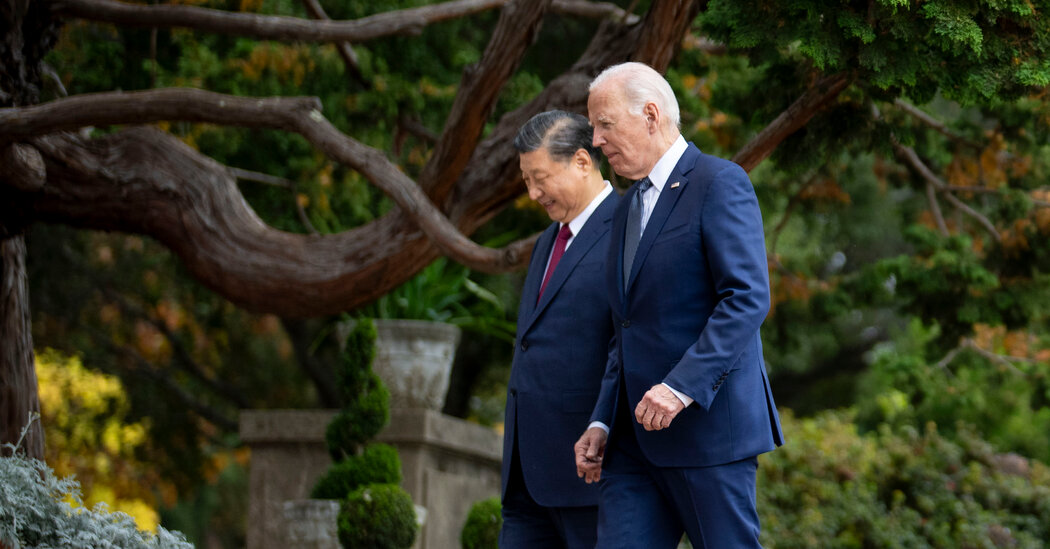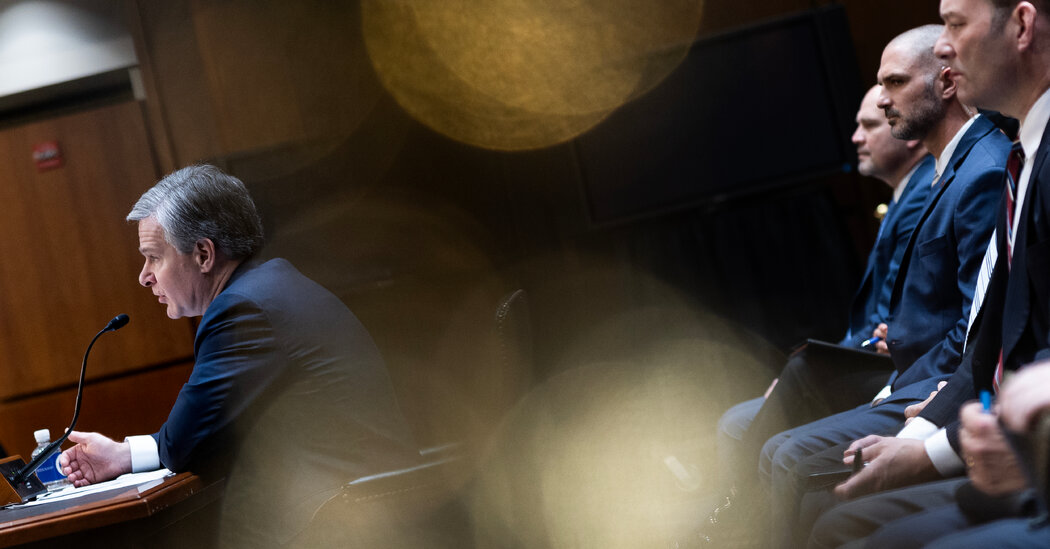The United States and China are locked in a new race, in space and on Earth, over a fundamental resource: time itself. And the United States is losing. Global positioning satellites serve as clocks in the sky, and their signals have become fundamental to the global economy — as essential for telecommunications, 911 services and financial exchanges as they are for drivers and lost pedestrians. But those services are increasingly vulnerable as space is rapidly militarized and satellite signals are attacked on Earth. Yet, unlike China, the United States does…
Tag: Cyberwarfare and Defense
U.S. and Britain Accuse China of Cyberespionage Campaign
The United States and Britain imposed sanctions on China’s elite hacking units on Monday, accusing Beijing’s top spy agency of a yearslong effort to place malware in America’s electrical grids, defense systems and other critical infrastructure, and of stealing the voting rolls for 40 million British citizens. Taken together, the actions on both sides of the Atlantic underscored the escalation of cyberconflict between the Western allies and Beijing, in vastly different spheres. American intelligence agencies have warned that the malware found in U.S. infrastructure appeared to be intended for use…
U.K. to Accuse China of Cyberattacks Targeting Voter Data and Lawmakers
The British government is expected to publicly link China to cyberattacks that compromised the voting records of tens of millions of people, another notable hardening of Britain’s stance toward China since its leaders heralded a “golden era” in British-Chinese relations nearly a decade ago. The deputy prime minister, Oliver Dowden, will make a statement about the matter in Parliament on Monday afternoon, and is expected to announce sanctions against state-affiliated individuals and entities implicated in the attacks. The government disclosed the attack on the Electoral Commission last year but did…
As China Expands Its Hacking Operations, a Vulnerability Emerges
The Chinese hacking tools made public in recent days illustrate how much Beijing has expanded the reach of its computer infiltration campaigns through the use of a network of contractors, as well as the vulnerabilities of its emerging system. The new revelations underscore the degree to which China has ignored, or evaded, American efforts for more than a decade to curb its extensive hacking operations. Instead, China has both built the cyberoperations of its intelligence services and developed a spider web of independent companies to do the work. Last weekend…
China’s Hacker Network: What to Know About the I-Soon Document Leak
Leaked documents posted online last week show how the Chinese government is working with private hackers to obtain sensitive information from foreign governments and companies. The hackers worked for a security firm called I-Soon, part of a network of spies for hire working closely with Beijing. The leak showed how China’s top surveillance agency, the Ministry of Public Security, has increasingly recruited contractors to attack government targets and private companies as part of a cyberespionage campaign in Asia. The leak is likely to stoke fears among leaders in Washington who…
Leaked Files Show the Secret World of China’s Hackers for Hire
A cache of documents from a Chinese security firm working for Chinese government agencies showed an extensive effort to hack many foreign governments and telecommunications firms, particularly in Asia, as well as targets of the country’s domestic surveillance apparatus. The documents, which were posted to a public website last week, revealed an eight-year effort to target databases and tap communications in South Korea, Taiwan, Hong Kong, Malaysia, India and elsewhere in Asia. The files also revealed a campaign to monitor closely the activities of ethnic minorities in China and online…
Biden Plans to Harden Protection Against Cybersecurity Threats to Ports
President Biden is expected to sign an executive order on Wednesday that will strengthen the government’s ability to respond to maritime cybersecurity threats, amid heightened concerns that China could seek to hobble crucial infrastructure systems within the United States. Anne Neuberger, the deputy national security adviser for cyber and emerging technology, previewed the executive order for reporters on Tuesday evening, saying it would broaden the powers of the Department of Homeland Security. She said that the order would also allow the U.S. Coast Guard to outline rules for establishing minimum…
U.S. Fears Russia Might Put a Nuclear Weapon in Space
When Russia conducted a series of secret military satellite launches around the time of its invasion of Ukraine in early 2022, American intelligence officials began delving into the mystery of what, exactly, the Russians were doing. Later, spy agencies discovered Russia was working on a new kind of space-based weapon that could threaten the thousands of satellites that keep the world connected. In recent weeks, a new warning has circulated from America’s spy agencies: Another launch may be in the works, and the question is whether Russia plans to use…
U.S. Disrupts Hacking Operation Led by Russian Intelligence
The F.B.I., working with other countries, disrupted a Russian hacking operation that infiltrated more than 1,000 home and small-business internet routers in the United States and around the world, the Justice Department announced on Thursday. Russian intelligence, collaborating with cybercriminals, created a botnet, or a network of private computers infected with malicious software, to spy on military and security organizations and private corporations in countries like the United States. Using a court order, the F.B.I. secretly copied and deleted stolen data and malware from hacked routers. Doing this stopped Russia’s…
Hackers for China, Russia and Others Used OpenAI Systems, Report Says
Hackers working for nation-states have used OpenAI’s systems in the creation of their cyberattacks, according to research released Wednesday by OpenAI and Microsoft. The companies believe their research, published on their websites, documents for the first time how hackers with ties to foreign governments are using generative artificial intelligence in their attacks. But instead of using A.I. to generate exotic attacks, as some in the tech industry feared, the hackers have used it in mundane ways, like drafting emails, translating documents and debugging computer code, the companies said. “They’re just…









